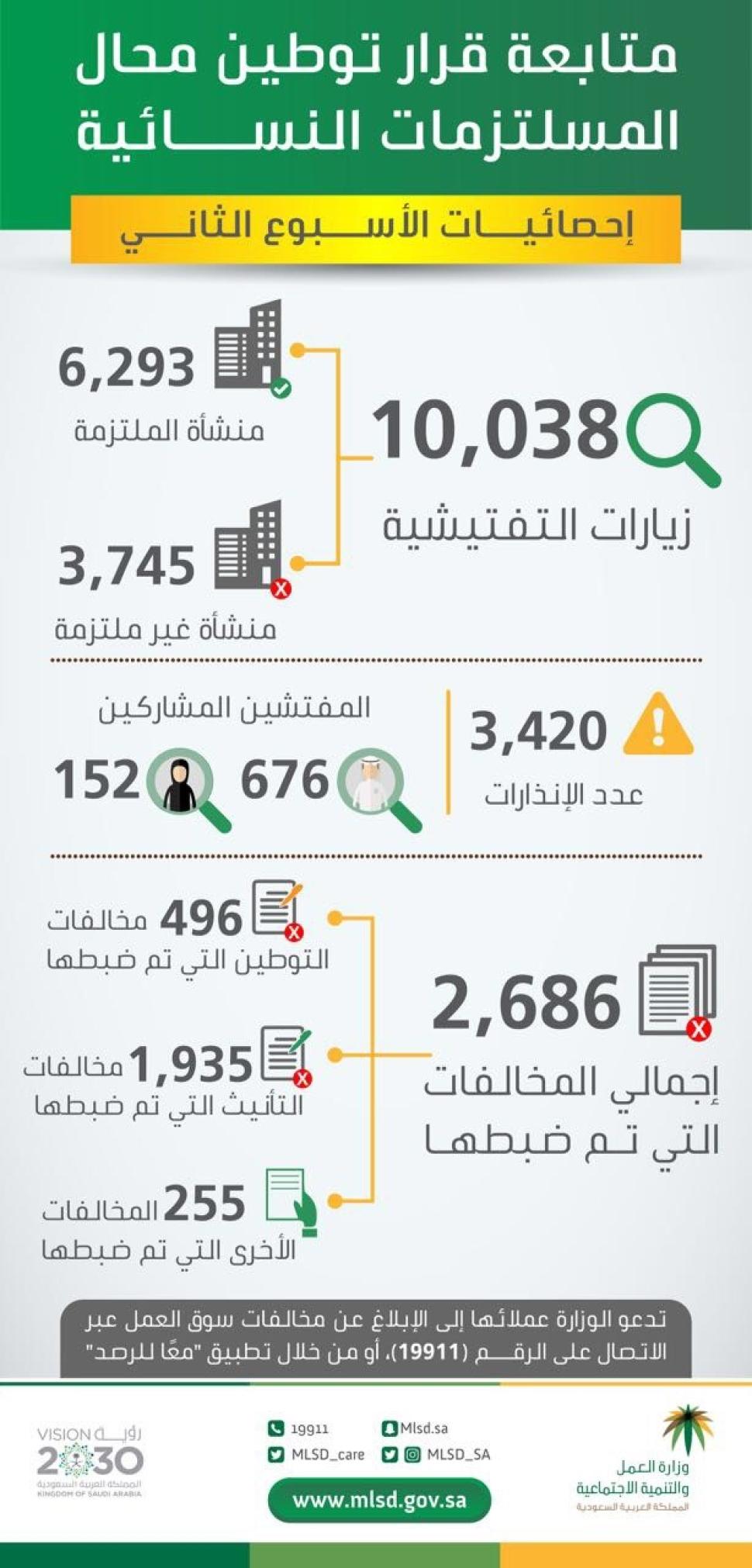
Spokesman of the Ministry of Labor and Social Development Khaled Abalkhail said labor inspectors conducted 10,038 rounds on commercial centers and independent stores across the Kingdom to make sure employers comply with the decision aiming to nationalize and feminize women-only shops in its the third phase, which is in cooperation with several government entities.
Abalkhail clarified that the inspection rounds uncovered 6,293 compliant establishments (68 percent) compared to 3,745 uncompliant ones (32 percent), pointing out these figures came in the second week of enforcing the third phase of the feminization and nationalization decisions.
Abalkhail highlighted the inspection campaigns detected 2,686 violations relating to the two decisions and the labor market, saying the number of warnings issued against the establishments during these rounds reached at 3,420 as the percentage of compliant establishments was at 11 in the second week of enforcement.
The spokesman added the Makkah region recorded the highest number of violations and visits with 516 and 1,074, respectively, and it was followed by the Riyadh region with 205 violations and 888 visits and the Tabuk Region with 213 violations and 331 visits.
Abalkhail urged customers to report violations or submit inquiries through dialing the customer service no. (19911) or using ‘Ma3an lil Rasd’ app on smart phones.
Meanwhile, the third phase of the decisions kicked off on Oct. 21 (the beginning month of Safar) to nationalize and feminize shops selling women-only necessities, including perfumes, shoes, bags, women socks, ready-to-wear cloths, kiosks and women fabrics, in addition to department stores selling women cloths along with other staples.
It also targets independent and small stores that sell soiree gowns, wedding dresses, Abaya (cloaks), accessories, Jalabiyas (traditional dresses) and mother-care products, as well as including pharmacies with sections that sell accessories and cosmetics.
In support of the move, the Human Resources Development Fund has offered an array of payroll rebate and training incentives for female workers, as well as the children hospitality program ‘Qurrah’ and the transportation program ‘Wusool’. Such schemes are in a bid to increase number of Saudi women in the workforce and curb unemployment among them.
Comments